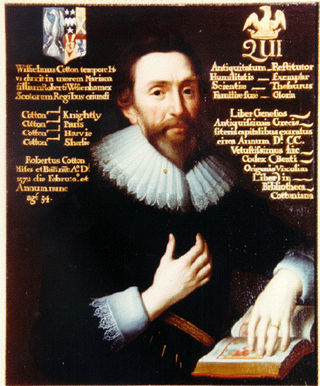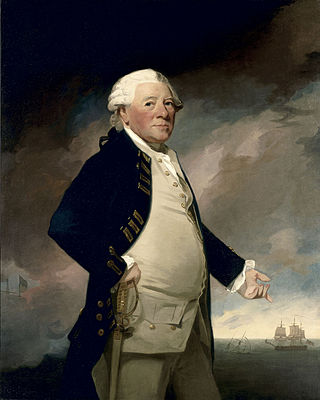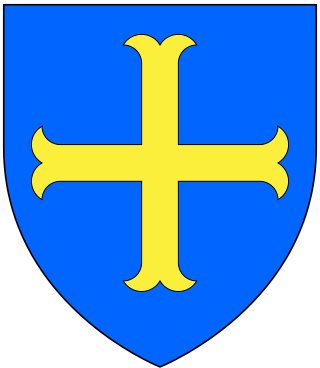Baron Denham, of Weston Underwood in the County of Buckingham, is a title in the Peerage of the United Kingdom. It was created in 1937 for Sir George Bowyer, 1st Baronet, a Conservative politician who had earlier represented Buckingham in the House of Commons. He had already been created a baronet, of Weston Underwood, in 1933. Bowyer was a great-great-great-grandson of Sir William Bowyer, 3rd Baronet, of Denham Court. As of 2017 the titles are held by his second but only surviving son, the 2nd Baron, who succeeded in 1948. In 1950 he also succeeded his distant relative in the Bowyer baronetcy, of Denham Court. Like his father, the 2nd Baron Denham was a Conservative politician and one of the ninety elected hereditary peers that remain in the House of Lords after the passing of the House of Lords Act 1999.

There have been three Baronetcies created for persons with the surname Cotton, all in the Baronetage of England. One creation is extant as of 2008.
There have been ten baronetcies created for persons with the surname Browne, six in the Baronetage of Great Britain, three in the Baronetage of Ireland and one in the Baronetage of Nova Scotia. Only one creation is extant as of 2010. Three of the creations were for members of the Browne family headed by the Viscount Montagu.

There have been two baronetcies created for members of the Knightley family, one in the Baronetage of England and one in the Baronetage of Great Britain. Both creations are extinct. The Knightley family originated at the Staffordshire manor of Knightley, acquired by them shortly after the Norman Conquest of 1066. In 1415 Sir Richard Knightley purchased the manor of Fawsley in Northamptonshire, where the senior line of the family became seated.

The Strachey baronetcy, of Sutton Court in the County of Somerset, England, is a title in the Baronetage of the United Kingdom. This family was originally seated at Walden, Essex, where William Strachey was living under the rule of Edward VI. Later they moved to Surrey and at last settled at Sutton Court, Somerset. The title was created on 15 June 1801 for the politician and civil servant Henry Strachey. Sir Henry was private secretary to Lord Clive during his last expedition to India in 1764. He also took part in negotiations for peace with North America where he assisted the kings commissioners at Paris. He died in 1809 and was succeeded by his eldest son Henry, the second Baronet Strachey. His great-grandson, the fourth Baronet, was a Liberal politician. On 3 November 1911, he was created Baron Strachie, of Sutton Court in the County of Somerset, in the Peerage of the United Kingdom. He later served as Paymaster General. The peerage became extinct on the death of his son, the second Baron, in 1973. The baronetage is currently dormant.

Three baronetcies have been created in the Baronetage of England for members of the Littleton or Lyttelton family. All three lines are descended from Thomas de Littleton, a noted 15th-century jurist. Despite differences in the spelling of the title, the names of all three lines were spelt in many varied ways in the early modern period, without distinction between the different branches of the family. This can be confusing, as the range of forenames in use was very limited.
There have been two baronetcies created for persons with the surname Roche, once in the baronetage of Ireland and once in the baronetage of the United Kingdom. One creation is extant as of 2010.

There have been seven baronetcies created for persons with the surname Parker, three in the Baronetage of England, two in the Baronetage of Great Britain and two in the Baronetage of the United Kingdom. Two of the creations are extant as of 2008. Though none of the different families of baronets were related, several supplied a number of flag officers to the Royal Navy.
There have been two Webster baronetcies.
There have been nine baronetcies created for persons with the surname Moore, two in the Baronetage of England, one in the Baronetage of Ireland, two in the Baronetage of Great Britain and four in the Baronetage of the United Kingdom. As of 2014 two creations are extant and one is considered dormant.
There have been two baronetcies created for descendants of the ancient 12th-century border family of Heron of Ford Castle, Northumberland.
There have been seven baronetcies created for persons with the surname Edwards, three in the Baronetage of England and four in the Baronetage of the United Kingdom. Only one creation is extant as of 2007.
There have been seven baronetcies created for persons with the surname Powell, five in the Baronetage of England and two in the Baronetage of the United Kingdom. Only one creation is extant as of 2007.
There have been four baronetcies created for persons with the surname Musgrave, one in the Baronetage of England, one in the Baronetage of Nova Scotia, one in the Baronetage of Ireland and one in the Baronetage of the United Kingdom. As of 2014 two of the creations are extant.
There have been four baronetcies created for people with the surname Parsons, two in the Baronetage of Ireland, one in the Baronetage of England and one in the Baronetage of the United Kingdom. One creation is still extant as of 2008.

There have been three baronetcies created for descendants of the ancient Norman family of Molyneux who were granted extensive estates in Lancashire after the Norman Conquest.

There have been four baronetcies created for persons with the surname Cope.
There have been six baronetcies created for persons with the surname Wright, three in the Baronetage of England, two in the Baronetage of Great Britain and one in the Baronetage of the United Kingdom. All creations are extinct.

There have been four baronetcies created for persons with the surname Martin, one in the Baronetage of England, one in the Baronetage of Great Britain and two in the Baronetage of the United Kingdom. All creations are now extinct.
There are four extinct baronetcies created for persons with the surname Norton: two in the Baronetage of England, one in the Baronetage of Ireland and one in the Baronetage of Nova Scotia.








